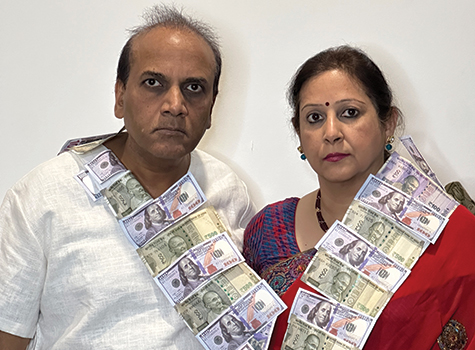By Jennifer Allen
“It is not he who is revealed by the painter; it is rather the painter, who on the coloured canvas, reveals himself.” ~ Oscar Wilde
 Recently I watched the 6-episode first season of Marvel’s The Falcon and the Winter Soldier. It’s set during the aftermath of the last two Avengers movies with certain characters who are now gone, other characters who have now returned, and a world that has to cope with the repercussions of both.
Recently I watched the 6-episode first season of Marvel’s The Falcon and the Winter Soldier. It’s set during the aftermath of the last two Avengers movies with certain characters who are now gone, other characters who have now returned, and a world that has to cope with the repercussions of both.
One of the overlying themes of the show is the search to find the worthiest person to take up the mantle of Captain America after Steve Rogers. The plot then deliberates between four different characters who, in the comic books, had wielded the iconic shield at one point or another.
There are two scenes that are particularly important over the course of the show. In both cases, a character donning both the shield and a red, white & blue costume to match with onlookers pulling out their phones to capture that moment. One scene portrays the symbolism of Captain America while at the same time committing murder. In the other, the character uses it in an attempt to build hope.
In both scenarios, the characters were not hiding behind the uniform but instead using it as an extension of who they really are. Despite their quite opposite intentions, both men were being authentic.
We now live in a world, like it or not, where anything and everything can be captured on camera. With that terrifying realization in mind, there is still that nagging question as to whether anything anymore is absolutely real.
Those selfsame scenes captured on our mobile devices can easily be taken out of context given when, where, and how this footage came to pass. The reality shows that have saturated our entertainment outlets are still heavily edited with a general script in mind to highlight the personality traits of certain individuals. While these attributes may indeed be real, the show is often reconstructed to amplify these to the point that this person or people are reduced to a niched archetype instead.
Ironically, modern culture has become obsessed with the concept of authenticity. Just about every major story franchise centers around a character or a series of characters who must partake on some sort of journey to ‘discover who they really are’. Just about all of us at one point or another has spent part of our lives trying to figure out who we are while also trying to stay true to ourselves.
The thing is, that while we can attempt to be as ‘legitimate’ as we want… there is still that stigma towards a certain image we must adhere to depending on the expectations of our culture and societal norms. The paradox is that all that effort to be ourselves, we instead become just like everyone else. Our uniqueness becomes just another drop within the sea of other individuals who ultimately share similar traits.
One of the largest contributing factors for this has been our growing attachment to social media. In this medium, we can construct fantasy versions of ourselves to which we then perform as if always on a stage. To this end, some often develop an acute sense of narcissism to stand out. While this stance may seem to create a posture of authenticity, it instead becomes the exact opposite. Often the narcissist is hiding confusion and insecurity behind this façade, which in turn makes this person about as non-authentic as anyone can imagine.
Unfortunately, we now live in a world where the concept of privacy has become a rare commodity; the very idea that there are aspects of a person’s life that one might not want to share with the public at large. There is also a distinguishable generation gap between those who have always known a world with social media in it, and those who have survived without the desire to chronicle every little detail for the whole world to see. For some it is just another part of life, while others see it as a vice they can do without.
So, the question ultimately becomes… how does one be authentic in a world defined by diverse perceptions?
Well for starters, it requires finding a way to resist the temptation towards self-absorption and fantasy. Secondly, we need to acknowledge that despite us all being individuals, almost everything in our culture encourages us to rely on others in order to escape our past and eliminate any chance of further misfortune in our lives.
Referring back to The Falcon and the Winter Soldier, the character who used the image of Captain America for wrongdoing… did so in part because of his decision to strike off on his own despite others offering to help him out. The other character, in contrast, utilized his allies and henceforth made a much more positive impact on not only himself but those around him.
I guess the true answer to being authentic is to humbly acknowledge our individual limitations, while at the same time use those same limitations to enrich the lives of others. As Socrates once put it, true wisdom is found in acknowledging what you don’t know and being completely comfortable with it. When put into that perspective, we all have the potential to discover who and what we are really meant to be.
Jennifer Allen works at Saathee and is also a Podcaster, Blogger, Photographer, Graphic Artist, Gamer, Martial Arts Practitioner, and all around Pop Culture Geek.



